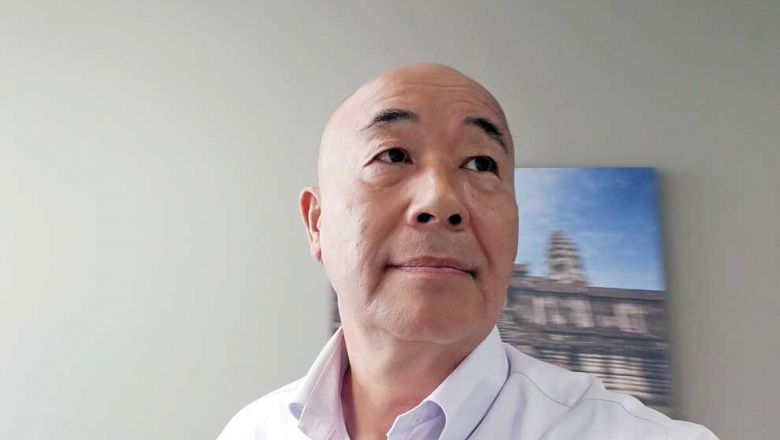Cambodia – Business Insider: Maintaining Phnom Penh’s construction boom
Phnom Penh’s construction boom has created an opportunity for specialised engineering firms to carve out a niche in the Kingdom. The Post’s Robin Spiess sat down with Masato Sanae, general manager of the Cambodian branch of Japan-based Taihei Engineering Company, to discuss how garden landscaping and construction maintenance can flourish in the capital.
Why has Taihei Engineering chosen to expand to Cambodia?
We believe opportunity and potential are here. Our head office in Tokyo will likely start seeing business decline in the next few years, because we’ve already built so much there and Japan is such a small country. We can work on renovations there, but in Cambodia, we can use what we’ve learned as a company so far to support the people.
We plan to do this by creating a better environment here by focusing on creating landscapes and gardens first. Japan went through the same process Cambodia is going through now, with rapid development that isn’t always environmentally friendly, and we don’t want them to make the same mistakes we did. We have the technology available now to make expanding cities more environmentally friendly, and we know we need to strike a balance between building tall structures and planting trees to ensure our future is bright.
How are you intending to localise your services?
We have not brought all of our services from Japan to Cambodia, because we are different countries and it is important to determine what this country needs first. My strategy is to begin with landscaping and then to start teaching maintenance, for both gardens and for buildings. We hope to start our first big landscaping project in the Kingdom at the start of next month.
We’re also going to be offering classes soon, teaching people about the importance of nature and explaining how to incorporate environmentally friendly concepts, like hydroponics, into their building concepts. Hydroponics, for example, allows you to use the organic waste from fish in a local pond to enrich the soil you use for your gardening.
What kind of technologies will you be using?
We are working with the Cambodian government to legally import a drone right now. It is only for construction work. I know drones have a bad reputation when they’re used improperly, but we can equip one with an infrared camera to help with maintenance and surveying, and it could do a lot of good. For example, if you have a tall building, we can use the drone to find the cracks and broken areas on the face of the building to detect where there are water and air leaks, and we can fix them. We can also use the drone to fly over the ground at a site where we might be building to use the camera to make sure there’s nothing there. It can detect if there are landmines, and can tell us the history of the land before we start building.
Why would your company rather move into building maintenance rather than construction?
There is a lot of construction here, but there isn’t much preventive maintenance. We want to keep buildings in good condition so they can survive for decades, which will save building owners money in the long run. Phnom Penh, I think, is especially in need of this process, because so many buildings are going up here so rapidly – which happens in a lot of rapidly growing cities – that there are sometimes shortcuts taken in construction. If we can find the problems before they get too severe, buildings will stand solidly a lot longer.
Do you have any other specific expansion plans for Cambodia in the future?
For our landscaping projects, I think it would be great to team up with local artists to begin integrating their work into our gardens. When I was young I worked with a sculptor, taking commissions to install artwork in gardens, and I think it comes in one package – artwork and nature go hand-in-hand.
We’d also like to expand outside of Phnom Penh and into other cities and then some more rural areas in Cambodia. With landscaping as our starting point right now, we’re targeting restaurants, hotels and private owners and to promote our interior and exterior landscaping projects, which we can normally complete within the week. There are people here who are looking to cultivate the type of environment that will attract more people and promote ecological awareness.
Source: http://www.phnompenhpost.com/business/business-insider-maintaining-phnom-penhs-construction-boom


 Thailand
Thailand




